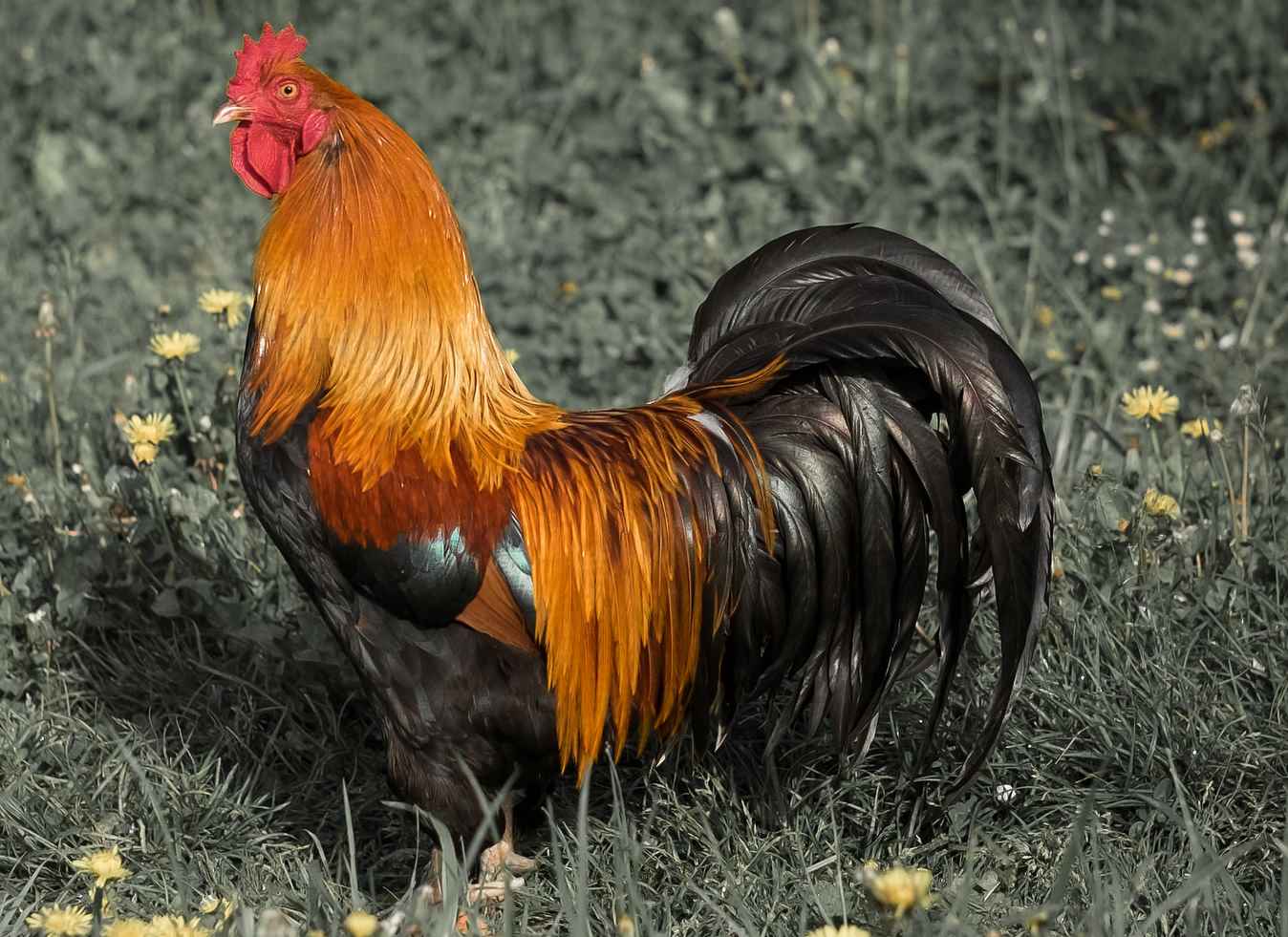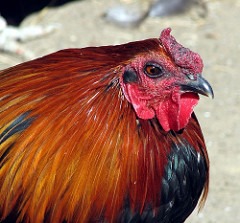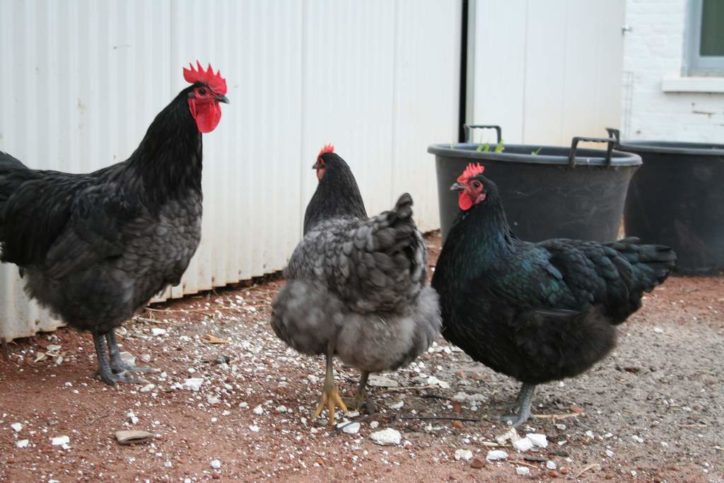Quick Answer:Chickens are crepuscular.
At first glance, a chicken is a silly creature. It waddles around on its tiny legs while bobbing its head in a strange jerking manner. But this strange creature is intimately tied to the human race. It has long been kept as livestock, and even in today’s supermarket age, it is often the defacto source of cheap meat.
Even more strange, this little creature may be related to dinosaurs! It’s not intuitive, how is the chicken at all related to the “terrible lizards” of days past? How did something even remotely connected to dinosaurs come to be domesticated by humans? To be honest, I’m not sure. (Stone, 2010).
But while I find the connection between dinosaurs and chickens fascinating, that is most likely not why you are here. You are here because you are curious about the sleep and activity patterns of chickens…so let’s get on with it!
What Time of Day Are Chickens Most Active? What Is Their Sleeping Pattern?
Chickens (Gallus gallus domesticus) are a subspecies of Gallus gallus (red Jungle fowl). Chickens are most active around dusk and dawn when the weather is cool. But the twilight hours are short, and chickens can often be seen moving around during the day.
Are Chickens Crepuscular?
Yes. They are most active during the twilight hours of dusk and dawn. In the mornings, a rooster will often caw loudly to project its dominance over the surrounding territory.
Are Chickens Nocturnal?
No, as prey animals they can be seen moving at all times of the day as is necessary to stay safe, but they are not primarily nocturnal.
Are Chickens Diurnal?
Chickens are more active during the day than they are at night. I believe it’s best to classify them as crepuscular, but they can be seen moving around during the day. This is especially true in the earlier and later parts of the day when the weather is cooler.
Are Chickens Matutinal?
Yes, as crepuscular creatures they are active in the mornings.
Are Chickens Vespertine?
Yes, as crepuscular creatures they are active around sundown.

Chicken Sleeping Facts
Chicken experience a deep sleep like we do. During their sleep cycles, they experience rapid eye movement (REM), which is a sign of good deep sleep.
Another surprising fact is that they can be asleep and awake at the same time. This phenomenon is known as uni-hemispheric slow-wave sleep (USWS). The chicken does this by having one eye open and one eye shut. This allows the chicken to rest one side of its brain while the other stays alert. Each eye is connected to the opposite hemisphere of the brain. For example, the left eye is connected to the right hemisphere of the brain. So when it closes its left eye, its right hemisphere sleeps.
Much like ducks, chickens will often sleep in a row like formation. The chickens on the outside of the formations will close the eye facing inwards towards the other chickens, and leave the eye facing outwards awake and alert. The chickens in the middle will close both eyes. This allows the chickens to keep an eye out for predators while resting.
How Long Do Most Chickens Sleep?
I haven’t found any hard data that specifies exactly how many hours a day a chicken sleeps. They seem to doze throughout the day and night. As a prey species, chickens sleep when they can. (Moore, 2014).
Can Chickens Sleep With One Eye Open?
Yes, they can, and they do it. It is a developed evolutionary advantage as part of self-defense against predators. As discussed earlier, this allows the chicken to rest while still keeping an eye out for predators. I sometimes wish I could sleep with one eye open…
Do Chickens Sleep Standing Up?
Yes. Chickens prefer to roost (perch) as high off the ground as they can when sleeping. This provides a safer place to sleep than the ground. Chickens come down from the roost when its feeding time, as most of the food chickens eat is found on the ground. (Kimberly Willis, 2015).
How Do Feral Chickens Sleep In The Wild?

The Gallus Gallus species, either wild or domestic, have the same sleeping pattern. They stay within their home range and have regular roosting sites,
A close up of a chickens head. image source
where they sleep high in the trees at night and rest during the hottest part of the day.
Do Chickens Like To Sleep In A Box?
Quite contrary to popular belief, chickens don’t actually cozy up together in their nesting box for some shut-eye, instead they prefer to get their forty winks perched high on a roost. This is because evolutionary traits have taught these clever creatures that to survive in the wild and not be preyed upon, they must roost high and nest low (ChickenHouses, 2001).
Are Chickens Intelligent?
Yes. Their intelligence is always underestimated. Studies show they have remarkable cognitive abilities. They can distinguish between more than 100 chicken and human faces. There are so many studies that measured their learning abilities like, training to obtain food by choosing a certain colored key, which they did successfully, meaning they learn by observation. One of the other surprising facts is that chickens will remember the faces of people who mistreat them. They will often respond aggressively to past aggressors.
Conclusion
There are almost 19 billion chickens in the world. They outnumber us a little more than 3 to 1. Whether you own chickens yourself or not, these creatures play a vital role in the life of modern man.
While we raise them as livestock, they are intelligent creatures that deserve our respect.
Title Image Source
References
Anne, 2018. 21 Surprising Facts About Chickens. [Online]
Available at: https://www.peta.org.uk/blog/21-surprising-facts-about-chickens/
[Accessed 12 Dec 2018].
Barth, B., 2016. The Inner Lives of Chickens: 5 Things You Never Knew About Your Beloved Birds. [Online]
Available at: https://modernfarmer.com/2016/03/chicken-facts/
[Accessed 12 Dec 2018].
ChickenHouses, 2001. Perch Importance: Chickens Need A Good Roost To Sleep. [Online]
Available at: https://www.backyardchickencoops.com.au/perch-importance-chickens-need-a-good-roost-to-sleep
[Accessed 12 Dec 2018].
International, H. S., 2014. About Chickens. [Online]
Available at: http://www.hsi.org/assets/pdfs/about_chickens.pdf
[Accessed 12 Dec 2018].
Kimberly Willis, R. T. L., 2015. BASIC CHICKEN BEHAVIORS. [Online]
Available at: https://www.dummies.com/home-garden/hobby-farming/raising-chickens/basic-chicken-behaviors/
[Accessed 12 Dec 2018].
Moore, J., 2014. The strange story of chicken sleep. [Online]
Available at: https://www.yourchickens.co.uk/news/the-strange-story-of-chicken-sleep-1-3520333
[Accessed 12 Dec 2018].
OneKind, 2016. Chicken (Domesticated). [Online]
Available at: https://onekindplanet.org/animal/chicken-domesticated/
[Accessed 12 Dec 2018].
Stone, R., 2010. Dinosaurs’ Living Descendants. [Online]
Available at: https://www.smithsonianmag.com/science-nature/dinosaurs-living-descendants-69657706/
[Accessed 12 Dec 2018].
TheHappyChickenCoop, 2015. 20 Surprising Things You Didn’t Know About Chickens. [Online]
Available at: https://www.thehappychickencoop.com/20-surprising-things-you-didnt-know-about-chickens/
[Accessed 12 Dec 2018].
